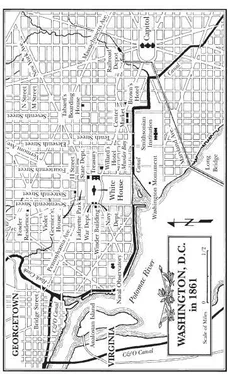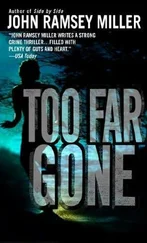John Miller - The First Assassin
Здесь есть возможность читать онлайн «John Miller - The First Assassin» весь текст электронной книги совершенно бесплатно (целиком полную версию без сокращений). В некоторых случаях можно слушать аудио, скачать через торрент в формате fb2 и присутствует краткое содержание. Жанр: Исторический детектив, на английском языке. Описание произведения, (предисловие) а так же отзывы посетителей доступны на портале библиотеки ЛибКат.
- Название:The First Assassin
- Автор:
- Жанр:
- Год:неизвестен
- ISBN:нет данных
- Рейтинг книги:3 / 5. Голосов: 1
-
Избранное:Добавить в избранное
- Отзывы:
-
Ваша оценка:
- 60
- 1
- 2
- 3
- 4
- 5
The First Assassin: краткое содержание, описание и аннотация
Предлагаем к чтению аннотацию, описание, краткое содержание или предисловие (зависит от того, что написал сам автор книги «The First Assassin»). Если вы не нашли необходимую информацию о книге — напишите в комментариях, мы постараемся отыскать её.
The First Assassin — читать онлайн бесплатно полную книгу (весь текст) целиком
Ниже представлен текст книги, разбитый по страницам. Система сохранения места последней прочитанной страницы, позволяет с удобством читать онлайн бесплатно книгу «The First Assassin», без необходимости каждый раз заново искать на чём Вы остановились. Поставьте закладку, и сможете в любой момент перейти на страницу, на которой закончили чтение.
Интервал:
Закладка:
Ahead, the moonlight fell upon the pale masonry of the Washington Monument-a big block of stone that was supposed to rise upward in tribute to America’s first president. Mazorca knew from guidebooks that it was meant to reach a towering height of 555 feet, but work had halted several years earlier. The monument now stood at about 156 feet. To begin building such an edifice and not finish it struck Mazorca as worse than not having started it in the first place-its incompleteness seemed to dishonor the figure it hoped to glorify. Yet he began to wonder if it represented an opportunity.
The monument stood in the center of a spit of land that stretched into the Potomac River at the point where a small inlet channeled water into the city’s canal. It was one of Washington’s chief landmarks, but Mazorca had not given it much thought previously. He approached its base at the summit of a slight incline. When he arrived at the site, he walked around the four sides of its exterior, pulling his fingers along the cold stone. He confirmed that there was only one door, in the center of the eastern wall. He assumed it would be locked and was surprised to see it give way when he pulled on the handle.
The interior was dark. Mazorca’s eyes were already well adjusted to the night, but he waited for a few minutes as they strained to give him a slightly better view. Right in front of him, a set of stairs began their ascent. When he had a good fix on their location, he closed the door. Pitch-blackness enveloped him. He took a few tentative steps in the direction of the stairs, tapping gently with his shoe as he got closer. He found the first step and felt for the wall on his right. Touching it, he began a cautious climb.
It was slow going. He hit a landing and turned. Then he hit another landing and turned again. He kept his right hand on the wall and his left hand in front of him to protect his head from low-hanging objects. In the passageway, it was impossible to see anything.
Eventually, however, Mazorca detected a faint radiance. He first saw it as he turned on a landing. It grew brighter as he continued upward, though it was never more than dim. After hiking a bit further, he saw its source: the staircase was open to the sky.
Mazorca clambered onto the top of the monument. He was on a square plateau, its edges perhaps fifty feet in length. Several blocks of stone were scattered about its surface. At a point near the center, a pole rose. A flag hung from it, showing signs of life from a wind whose blowing Mazorca had not noticed on the ground. He remembered having seen the banner fly during the daytime. It appeared as though nobody checked on it with any regularity.
From two sides of the monument, Mazorca saw almost nothing except moonlight glistening on the waters of the Potomac. On the other two sides, he saw the lights of the city. Somewhere down there, people were searching for him. He was exhausted and needed to shut his eyes. He gathered a couple of empty canvas bags and rolled them into something that resembled a pillow. Then he curled himself on the roof of the monument and fell asleep almost immediately.
Hours later, the sun woke him as it peeked above the half-finished dome of the Capitol, about a mile to the east. Above him, the flag flapped in the breeze. When he stood up, Mazorca surveyed Washington from his unique vantage point. Near the base of the monument, pigs and cattle roamed freely. To the south and the west, he saw the Long Bridge spanning the Potomac, the docks of Georgetown, and the Naval Observatory. To the north sat the city, or most of it.
He watched several groups of soldiers make their way to the Capitol. Mazorca figured that these were members of the New York regiment, reporting for duty at their new lodgings. More than a few would be drowsy or hungover, having spent their first night in Washington pursuing revelry rather than rest. Mazorca had seen more than a few of them in Murder Bay. No matter how sleepy or miserable they felt, however, they were now the toast of the city. He envisioned people from all over Washington heading to the Capitol to greet them.
The monument offered an excellent view of the White House. Mazorca counted second-floor windows until he found the one that he had seen from the other side, in the president’s office, just a few days earlier. He wondered whether Lincoln was in there right now. He wished that he could just walk through the front door as he already had done and end his mission with a quick pull of the trigger. The impulse was powerful, but Mazorca resisted it. His mission called for patience and cunning, not haste and desperation. His general plan remained a sound one. He would just have to improvise the specifics.
Mazorca pulled the photograph from his coat pocket and examined it in the daylight. It remained what it had been the night before-good enough for purposes of recognition. He crushed it into a ball and tossed it off the side of the monument. When it disappeared from sight, he picked up his hat and coat and started down the steps. He carried his book in his left hand.
Every lead had gone cold, with a single exception. Standing in front of the house at 398 Sixteenth Street, Rook knew that he needed to confront Violet Grenier. The distribution of Mazorca’s photograph had not produced anything useful. A handful of people claimed to have seen him at various times and places, but none could say where he was now or where he might go. The only report of significance was Zack Hoadly’s, but it had merely permitted Rook to track Mazorca’s movement up to a certain point. And then the trail had vanished once again.
Overnight, the body of Charles Calthrop, the bookbinder, had turned up-a soldier found it floating in the canal, where it apparently had been dumped a few days earlier. The corpse was swollen and starting to rot, and it had been difficult to identify, but a city policeman recalled hearing that Calthrop had failed to make an expected delivery. They went to the bookbinder’s home and found the bloody scene.
There was no evidence that Mazorca had anything to do with it. Yet Rook had no doubt that he was the killer. It was the simplest explanation: the two men had been in recent contact, there had been some friction between them, and since then Mazorca had been revealed as an efficient and professional murderer. Rook was determined to stop him before he had a chance to strike at the president-and right now, his only hope lay with a woman who had quietly been his nemesis.
Grenier had been placed under an official, sanctioned watch ever since Rook presented Mazorca’s photograph to Scott. It was the kind of observation Rook had wanted for days: a team of men holding various positions on Sixteenth Street, in Lafayette Park, and in an alley behind the house. The only difference was that they now made no effort to conceal themselves. The operation was closer to a house arrest than surveillance.
“The lights were on until an hour or two before dawn,” said Corporal Clark, who had kept watch through the night from a bench in Lafayette Park. “She was definitely up and about-I kept seeing movement near the windows. She’s still inside right now.”
“Is she awake?” asked Rook.
“Hard to say. The lights did go out before sunrise-maybe three or four hours ago.”
“I’d like you to come to the door with me.” Rook looked at Clark’s belt, where the corporal had a pistol holstered. “Is that loaded?”
“Yes, sir.”
“Good. I don’t know what to expect.”
Rook checked the chamber of his own pistol. It was loaded too.
At the front door, Rook grasped a metal knocker and banged it hard. He wondered what kind of reception he would receive. Would Grenier’s servant answer and say her mistress was ill and could not see anybody? Or would Grenier receive him with a chilly formality? Rook even thought about the possibility of forcing his way through the door. It was thick and would not easily budge. Perhaps with Clark’s assistance, however, he could get it open.
Читать дальшеИнтервал:
Закладка:
Похожие книги на «The First Assassin»
Представляем Вашему вниманию похожие книги на «The First Assassin» списком для выбора. Мы отобрали схожую по названию и смыслу литературу в надежде предоставить читателям больше вариантов отыскать новые, интересные, ещё непрочитанные произведения.
Обсуждение, отзывы о книге «The First Assassin» и просто собственные мнения читателей. Оставьте ваши комментарии, напишите, что Вы думаете о произведении, его смысле или главных героях. Укажите что конкретно понравилось, а что нет, и почему Вы так считаете.












